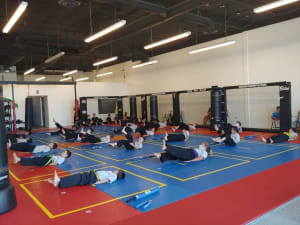
COVID is disrupting how kids interact with each other and with family members at home. With many places deferring face to face classroom interactions until the pandemic is over, kids and their parents are now left to adjust to a new normal.
The New Normal and Kids' Mental Health
Staying home for extended periods of time is not the normal most people are accustomed to. But this is the reality for so many, including kids who by now should be back in school. Instead, they can no longer interact with their peers, classmates, and teachers, nor can they learn lessons the traditional way.
The anxiety that comes with the uncertainty of the situation coupled with new living arrangements can take a toll on any person, even among young kids who are deemed more flexible and adaptable to situations like these. The new normal can affect your kids' mental health in many ways. Mental pressures and stressors can come in the form of : weight gain changes in family circumstances (parents losing jobs, death of relatives, etc) being stuck at home with no social environment, germ fears issues with sleep.
While the extended vacation and more time with family come with their own advantages, living in the new normal can create a new set of problems for parents and kids especially for those who are prone to anxiety. Weight gain is a legitimate concern especially among kids with limited options for physical activity. Weight gain anxiety can trigger a wave of negative emotions and may even lead to depression among predisposed kids. Emotional problems, like anxiety and depression, are also not uncommon especially among kids who struggle to adapt in living arrangements that are drastically different from their lives before COVID.
Importance of a Strong and Healthy Mind
Kids even those who are predisposed to anxiety and depression need to develop skills that encourage resiliency and healthy minds. Activities that enhance the child's ability to focus and concentrate as well as offer opportunities for physical exertion may be essential in helping kids cope with the effects of COVID and the changes during the pandemic.
Martial Arts Training for Kids Martial arts training can be a useful tool in helping kids adjust and thrive even in the middle of a pandemic. The physical aspect of training can help prevent weight gain and help kids maintain a healthy, active lifestyle. Martial arts also help promote normal physiological development, especially muscle, flexibility and coordination development. Karate training exercises that rely on body weight and resistance helps promote normal body development and strength.
Martial arts training can build a child's sense of accomplishment, promote healthy self-esteem, and help build a sense of control, activities that can help prevent anxiety and depression. The emphasis on structured training can give kids a sense of structure, the kind that was previously provided in school and may now be poorly replicated at home.
Martial arts training also brings a sense of empowerment. Living during a pandemic can make it easy for kids to feel like they have no control over what is happening. Engaging in a sport that develops their voice, grounds them, and gives a sense of full agency and control over their bodies can be very empowering indeed. All these can help kids who are predisposed to anxiety and other disorders.
Martial arts training, whether you kids like karate, taekwondo, or muay thai can bring numerous mental, emotional, and physical benefits for kids during the pandemic. Ensure that your kids stay active physically and develop their assertiveness, focus, self-control, and self-esteem with the right martial arts class.



